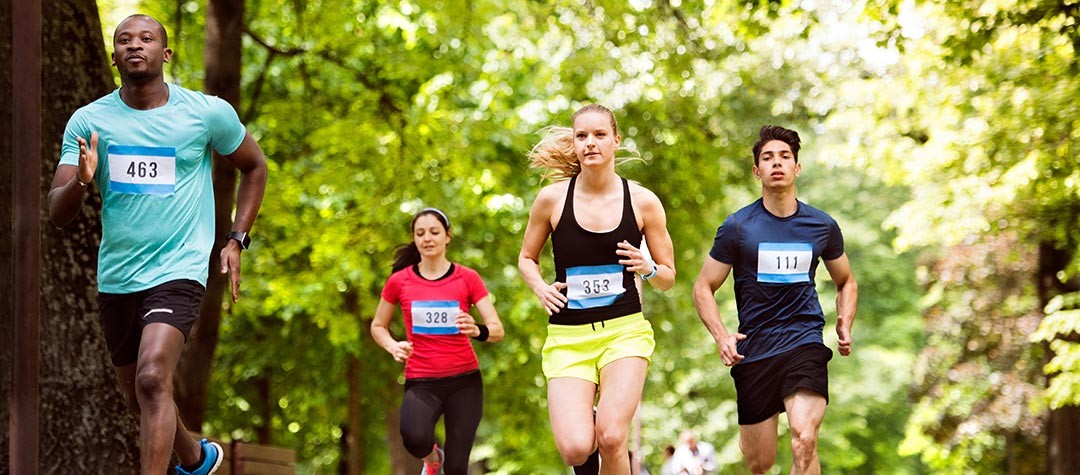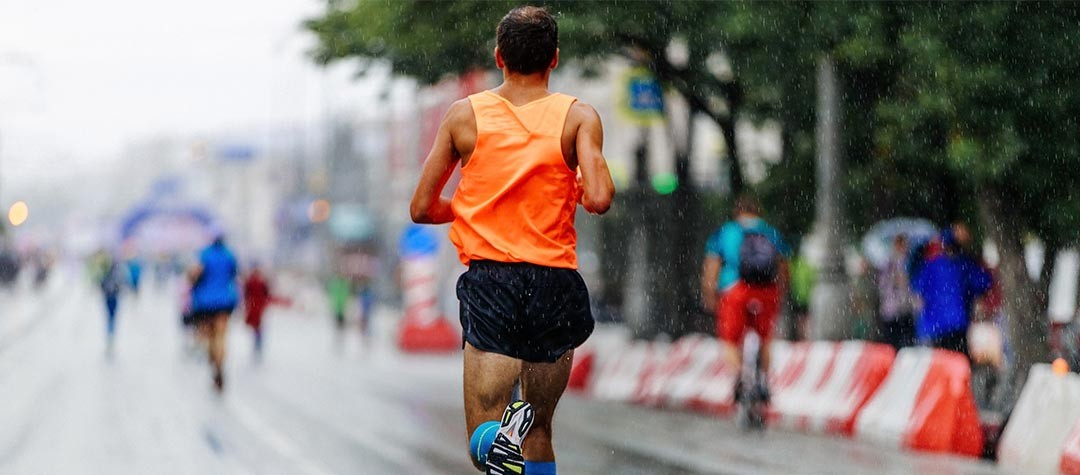Find out how to get your approach right for a 5k race with tips on tactics and pacing strategies.
The 5k is probably one of the toughest events (on the track) for the elite/professional runners because the event tends to attract athletes from different distances.
Sometimes you get the 1500m runners stepping up and running a 5k to see how their strength is, and at other times you might have a 10k guy stepping down to test his speed. The end result is you have a race full of athletes with different speed and strength abilities and therefore there is no "one way" to run it.
The best example of this was probably the 2004 Olympic games 5000m final where you had Hicham El Guerrouj, who’d won the 1500m 4 days earlier and was known as 'King of the Mile'. Lining up against him was Kenenisa Bekele who was the gold medallist in the 10,000m. El Guerrouj came out on top that day with a blistering sprint finish and became the first man in 80 years to win the 1500m and 5000m at the same Olympics.
What kind of 5k runner are you?
With this in mind you need to sit down and think about what your strength is. Are you more speed based and love the thought of racing over the one mile distance, or do you love the Sunday long run and think the 5k is just a little bit short for you? The 5k distance is probably the longest distance a speedier, middle distance type person would run and it is also the shortest an endurance based athlete would go. Once you have grasped where you think you are in terms of speed or strength then you can decide how you want to run the race.
Getting the 5k pace right
If you are more of middle distance athlete with a faster pace you want to slowly increase the pace every 1 km until you get to the last kilometre and then really hit that hard and use your speed to finish strongly. On the other hand if you are more endurance based then an even paced race would suit you better. Your body probably isn't as adept at dealing with lactic acid due to the longer runs and longer training sessions you do, so if you go off too hard at the start of the race you'll be in trouble.
The key is to set off at a steady (not slow) pace that you should be able to hold only for 5k, not 10k. By that I mean don't run too much within yourself, remember the 5k is going to hurt and you want to make sure you have given it your all by the end. Just setting off slowly and then realising that you have loads of energy left at the end for a sprint finish isn't going to produce your best times.
Try a 5k on the track
As well as the local 5k runs in the park during the summer months you might want to try your hand at a 5000m track race. As well as being considerably quicker than running in the park it will be easier to pace yourself. The 5000m is 12.5 laps of the track and so you can keep an eye on your pace every 400m, or even every 200m if you want! In training you can practice on a track until you have the pace that you want to run ingrained in your legs, after which it is just a case of maintaining that pace when it starts to hurt.
Where does the 5k get tough?
Generally every 5000m runner will say it is the kilometre between 3 and 4 km where you really have to maintain focus and keep the pace high. This is the stage of the race where it is going to hurt but remember once you have gotten the 4th kilometre done you only have 1 km to go. It’s easy to lull during this 4th kilometre and be tempted to slow it down a little, have a little breather, then push the last 1 km. The trouble is it doesn't work that way unfortunately. The combination of slowing down on purpose and then slowing down because of tiredness will result in an overall loss of time that you just won’t be able to get back over the last kilometre.
The 5000m is one of those races you can run pretty much every week, and you can really get a feel for the distance and practice different ways to run it. Once you have nailed down what you think is the best tactic for you, then you can focus on that in training and improve your times in the race. Good luck, and go smash a 5k!















